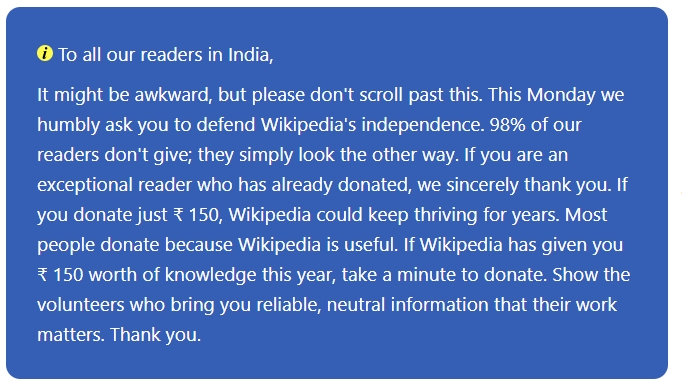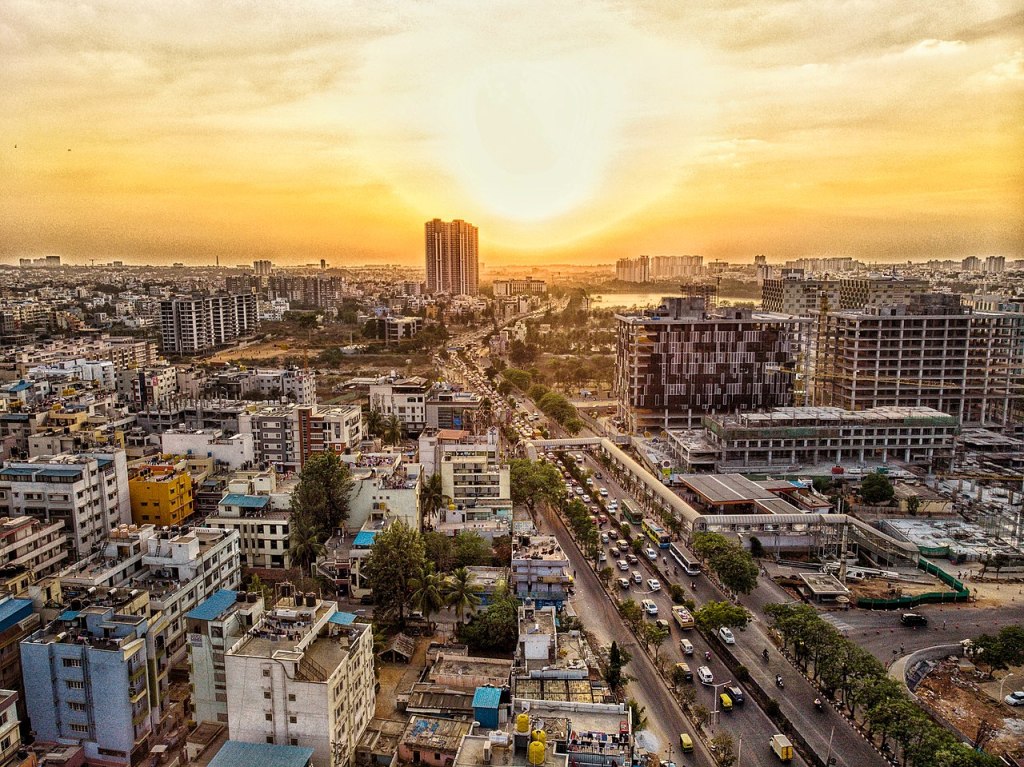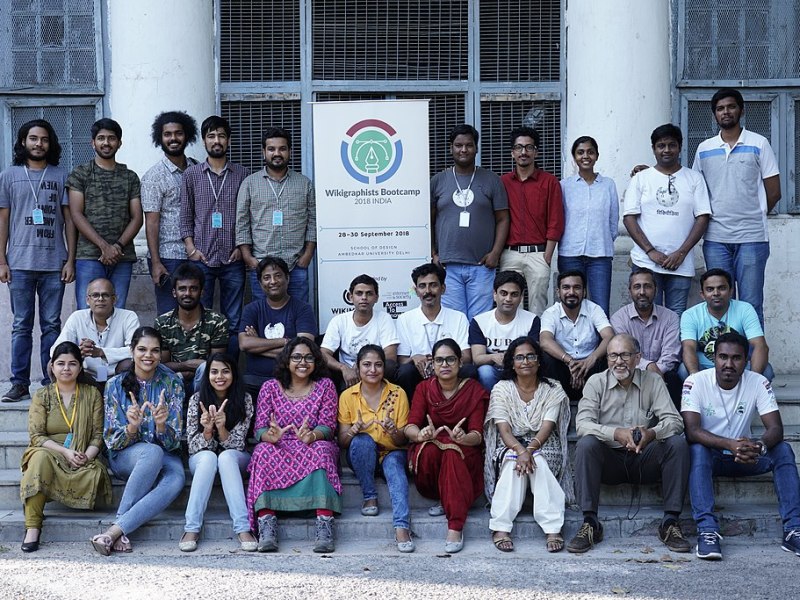Recently, the Wikimedia Foundation began a fundraising campaign on Wikipedia in India, inviting anyone who relies on Wikipedia to support its future. Banners are appearing on the English Wikipedia in India, asking readers to consider contributing with a donation.
The banners have generated a lot of conversation online. We wanted to address some of the comments from our Indian users about why we are running the campaign and how donations to Wikipedia are used. Wikipedia is not a commercial website, and we are not driven by profit or advertising incentives. We are a charitable organization supported by the people who read Wikipedia. Our mission is to ensure that everyone, everywhere, can share in and access free knowledge.

Anyone can edit Wikipedia, and in the nearly 20 years since Wikipedia’s founding, millions of volunteer editors of diverse backgrounds and beliefs from all over the world have contributed to its articles. Wikipedia is powered by more than 250,000 global volunteers every month; it spans more than 50 million articles across nearly 300 languages.
Readers in India visit Wikipedia more than 750 million times each month, the fifth highest number of views from any country. Not only do Indians access Wikipedia in large numbers, Indian Wikipedia editors are integral and valued contributors to the encyclopedia, which is available in 23 of the languages spoken across India. In recent months, Indian volunteer contributors have ensured that neutral, reliable information about COVID-19 is available across Indic languages on Wikipedia. They have collaborated with global health partners so that information and new developments about the pandemic are well-sourced, accurate, and vetted by medical experts.
We ensure Wikipedia remains fast, secure, and reliable wherever you are in the world.
Reader donations are critical to supporting Wikipedia’s global presence. To meet the needs of readers in India and around the world, we operate an international technology infrastructure comparable to the world’s largest commercial websites. This includes hosting costs like keeping our servers running, as well as significant, ongoing engineering work to make sure Wikipedia is reliable, secure, loads quickly, and protects your privacy. As a living, constantly-changing project (with 350 edits per minute and roughly 6,700 pageviews per second), this has become increasingly important as we’ve seen more and more people turn to Wikipedia as a resource during the COVID-19 pandemic.
Donations also allow us to dedicate engineering resources to ensure that you can access Wikipedia in your preferred language, on your preferred device, no matter where you are in the world — from a dial-up modem to a brand new smartphone. Most major websites support an average of 50-100 languages — Wikipedia supports roughly 300 languages, a number that grows every year. We also use donations to reinforce volunteer efforts in ensuring information on Wikipedia is neutral, accurate, and well-sourced, working with volunteer contributors to build tools that protect against vandalism and help identify unsourced information.
Altogether, over 250 people work in engineering and product development at the Wikimedia Foundation. They work directly with our servers; manage traffic and uptime; maintain security and respond to attacks; design, develop, and release new features and experiences; support advanced editing tools and services; protect reader and editor privacy; improve accessibility for people with disabilities; and keep bandwidth costs affordable for readers. That works out to only one employee for every four million monthly readers of Wikipedia! Compared to other top websites with thousands of engineers, our mandate is to do a lot, with a little.
We support community-led projects to set knowledge free
We recognize that some of the best ideas to set knowledge free come from people around the world who use and contribute to Wikipedia and its sister free knowledge projects. At the Foundation, we collaborate with Wikimedia volunteers around the globe to support their ideas and help them bring more free knowledge to the world. In India, the Wikimedia Foundation has provided more than 2 million USD in funding to free knowledge since 2010, through grants to individuals, groups, and organizations, across 10 language communities. Support has helped Indian volunteers preserve and digitize historical sources, introduce them to new skills, and promote knowledge equity.
Last year, the Foundation issued more than 8 million USD in funding, or 7% of the Foundation’s annual budget, through grants to Wikimedia community members, affiliates, and nonprofit organizations around the world. This grantmaking is done in large part through participatory decision making processes, with Wikimedia volunteers serving on grant committees to discuss and provide recommendations on grant proposals. This funding supports the addition of new knowledge to Wikipedia and the other Wikimedia project sites through edit-a-thons, events, and initiatives that work to fill knowledge gaps and increase diversity on our sites.
We advocate for global policies that protect and advance access to information
The Foundation’s policy and legal efforts help ensure that everyone has the right to access, share, and create knowledge, while defending our volunteers from threat of reprisal, and upholding our commitment to free expression and open knowledge. We advocate for free licenses and open source software and work to make sure that copyright laws are built and reformed so that people can share and use knowledge more broadly. We also fight against censorship and protect the right of everyone to speak and learn freely. Support for this work is vital to giving you and users everywhere equal access to Wikimedia projects.
Your loyalty and donations ensure free knowledge can thrive
Wikipedia and Wikimedia projects belong to everyone—they are built for and by you. From readers to editors, we all have a stake in preserving and telling the stories of our history, our culture, and the intriguing and notorious people who have shaped our world. We recognize that not everyone has the ability or means to give. All that we ask is that you continue to seek us out as the world’s largest free knowledge resource.
For those who can support us, your donations will help continue to sustain the systems that make Wikipedia possible, and ensure the free knowledge movement can grow and thrive. We know not everyone can afford to support this work — which is exactly why Wikipedia exists. Our mission is to make sure free knowledge is available to the world, for everyone, everywhere.
We’re able to make this commitment thanks to the tremendous generosity of past and present donors, and the incredible work of the global Wikimedia volunteer communities. But our work is not done. There is so much more knowledge in the world, and so many more people to reach. To fulfill our mission to create a world in which every human being can freely share in the sum of all knowledge, we need to meet the new challenges of our time. If you value this work, please support it. Visit donate.wikimedia.org to make a contribution today.



